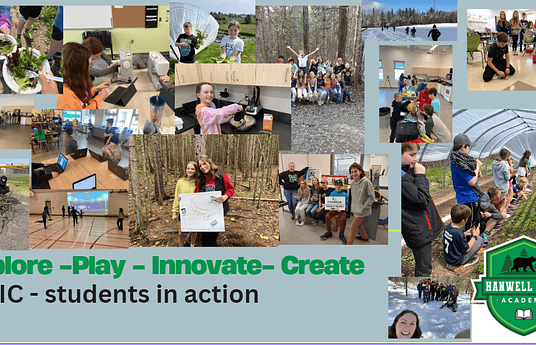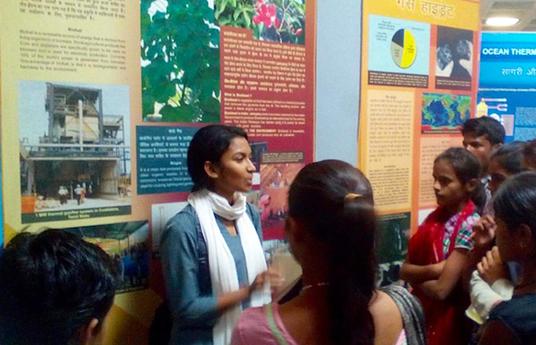A staggering 250 million children globally are missing out on early childhood development—the majority in rural communities across the Global South. Governments, childcare centres and pre-primary services have a vital role to play. But the most powerful—and most overlooked—part of the solution is parents. Rural children spend 75% of their time at home, making parents the single biggest influence on their early development.
Yet, in many rural communities, parents—especially mothers—lack the confidence, information, and support to provide nurturing care. Many wrongly believe they don’t have the skills or resources to help their child thrive. In low-literacy areas, accessible guidance is scarce. A study of 2,500 parents in rural Ghana found only 13% had done any stimulating activity with their child in the previous three days.
That’s why we created Lively Minds. Our big idea? Parents are the sleeping giants. We awaken their potential and transform them into confident, capable ECD providers. We provide practical, play-based, and context-appropriate ECD tips and ideas to parents at the last mile—cheaply and at scale—so they can take action using their own resources.
93% of parents in our programme have less than two years of education. They are unpaid and receive no materials. Yet independent evaluations show they bring about powerful, lasting improvements in their children’s cognitive, physical, and social development.
Lively Minds empowers parents—especially mothers—as early childhood educators through a practical, low-cost and scalable model that works in two complementary ways:
1 - In communities, we train up to 40 mothers per village to run free educational Play Schemes for 3–6-year-olds using fun educational games. These schemes have been proven by an RCT to stimulate learning, improve wellbeing, and encourage hygiene. Where formal kindergartens exist, they complement and strengthen them; where they don’t, they bridge the gap.
2- At home, parents are taught - through workshops and a radio programme - low-cost activities that support whole-child development and can be woven into everyday routines. Topics span learning through play, health, protection, life skills, and wellbeing.
The model champions gender equality by recognising mothers as capable educators and reframing parenting as a valued role. It also involves fathers to help shift entrenched norms.
To reach the hardest-to-reach, we scale through governments and radio:
- Our government model embeds the programme into national systems via a “train-the-trainer” approach, using local staff, digital tools, real-time data, and policy support. It costs just $3 per child per year.
- Our radio programme reaches 2.4M listeners weekly in local languages for just $0.20 per listener per year—providing parents with ECD guidance and shifting attitudes, especially among fathers.
Our innovation has evolved from a grassroots pilot to a programme covering a third of Ghana and Mayuge District in Uganda, now expanding nationally in Ghana. In both countries, we’ve proven that governments can deliver the model at low cost and high quality using existing systems. Through “train the trainers” and robust tools, we’ve reached over 295,000 children annually and activated about 140,000 mothers as ECD providers. Our radio programme now reaches 2.4 million rural parents weekly in 24 languages, expanding to 29 by June 2025.
The dual model—face-to-face and radio—allows us to scale rapidly, sustainably, and equitably. It’s highly adaptable: in Ghana, we work through education systems; in Uganda, through community health structures.
Now that we’ve rigorously tested and proven our model at scale and are now set to replicate, we are ready to expand to two more countries by 2030. In response to evolving funding needs, we’re pioneering new ways of working—optimising impact, reducing costs, and exploring digital tools and lower-cost delivery methods. We’re also driving collective action by collaborating and sharing expertise to advocate for a global shift in how ECD is delivered at the last mile, with parents at the centre.
We’ve continually adapted and strengthened our innovation to deepen impact, expand reach, and ensure long-term sustainability.
The most significant addition to our innovation has been the Lively Minds Together radio programme. It was first developed during the COVID-19 pandemic, when in-person activities had to pause, as a way to continue reaching rural parents with essential early childhood development (ECD) messages. Given the success of it, what began as an emergency solution has since evolved into a key, permanent component of our programme.
Radio is highly trusted and accessible across rural areas and allows us to deliver engaging, play-based parenting guidance at a fraction of the cost of in-person delivery. Our radio episodes, aired in local languages, offer practical ways for parents to support their children’s development using everyday household routines and resources. We also address parental wellbeing, health, and harmful gender norms—reaching both mothers and fathers. Today, the programme reaches 2.4 million parents weekly and will air in 29 languages by June 2025.
Alongside radio, we have strengthened our government delivery model by building real-time data systems, digital learning tools, and more tailored technical assistance. These changes have helped us scale effectively within two different government systems and prepare for replication in new countries.
Our model has a quite complex implementation systems as it is delivered through government systems. It cannot be instantly adopted by someone else. Yet, many of the approaches are replicable – including parents as the agents of change, behaviour change approaches to overcome the grassroot barriers, using radio to upskill rural parents. Get in touch with our ECD Advocacy & Systems Change Manager.



